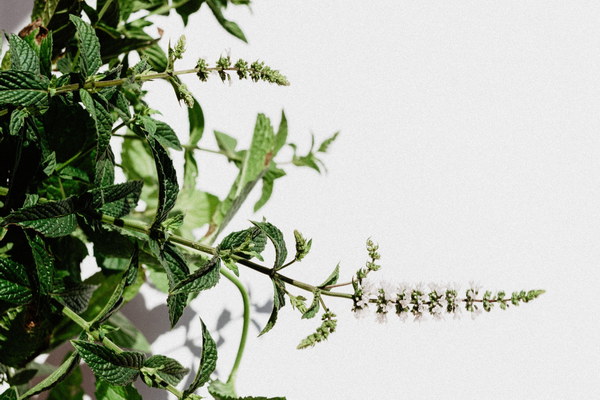Herbal Remedies for Lung Detoxification and Phlegm Dissolution A Natural Approach to Respiratory Health
In the realm of traditional medicine, there is a wealth of natural remedies that have been used for centuries to promote lung health and alleviate respiratory conditions such as phlegm accumulation. These herbal remedies, often found in various forms like teas, tinctures, or supplements, are believed to help clear the lungs and reduce the build-up of mucus. Below is an exploration of some of the most commonly used herbs for lung detoxification and phlegm dissolution.
1. Elderberry (Sambucus nigra)
Elderberry is a well-known herb with a long history of use in traditional medicine. It is believed to possess antiviral and anti-inflammatory properties that can help reduce inflammation in the respiratory tract and boost the immune system, thereby aiding in the clearing of phlegm and reducing the risk of respiratory infections.
2. Thyme (Thymus vulgaris)
Thyme is a powerful herb with expectorant properties, meaning it can help loosen and expel mucus from the lungs. It is often used in cough remedies and teas to soothe the throat and improve respiratory function.
3. Eucalyptus (Eucalyptus globulus)
Eucalyptus is another herb with well-documented respiratory benefits. Its essential oil is particularly effective in clearing the sinuses and respiratory tract, while also providing relief from coughs and colds.
4. Licorice Root (Glycyrrhiza uralensis)
Licorice root is often used in Chinese medicine to address respiratory conditions. It is believed to have anti-inflammatory and demulcent properties that can soothe the throat and lungs, reducing inflammation and promoting the expulsion of mucus.
5. Mullein (Verbascum thapsus)
Mullein is an herb that has been used historically to treat respiratory issues. Its leaves can be made into a tea or tincture and are thought to help reduce inflammation and thin mucus, making it easier to expel from the lungs.
6. Marshmallow Root (Althaea officinalis)
Marshmallow root is known for its demulcent properties, which means it can coat and soothe the mucous membranes. This makes it particularly useful for soothing sore throats and reducing irritation in the respiratory tract.
7. Ginger (Zingiber officinale)
Ginger is not only a flavorful spice but also an effective herb for respiratory health. It can help to reduce inflammation in the respiratory tract and is often used in combination with other herbs to enhance their effectiveness.
8. Peppermint (Mentha × piperita)
Peppermint is another herb with both culinary and medicinal uses. Its menthol content can help to dilate the bronchial tubes, allowing for easier breathing and the elimination of mucus.
How to Use These Herbs
While these herbs can be beneficial for respiratory health, it is important to use them correctly. Here are some guidelines for incorporating them into your wellness routine:
- Teas: Brew a cup of tea by steeping dried herbs in hot water for several minutes. Thyme, mullein, and ginger teas are particularly soothing.
- Tinctures: These are concentrated extracts of herbs and can be taken in small doses as recommended on the label.
- Inhalations: Eucalyptus oil can be inhaled directly from a bowl of hot water or added to a diffuser to help clear the sinuses.
- Supplements: Some herbs are available in capsule or tablet form for convenience.

Safety and Considerations
It is always advisable to consult with a healthcare provider before starting any new herbal treatment, especially if you have underlying health conditions or are taking other medications. Some herbs may interact with prescription drugs or have side effects when consumed in large quantities.
In conclusion, the use of herbal remedies for lung detoxification and phlegm dissolution offers a natural and holistic approach to respiratory health. By incorporating these traditional herbs into your wellness routine, you may find relief from respiratory issues and promote overall lung well-being.









